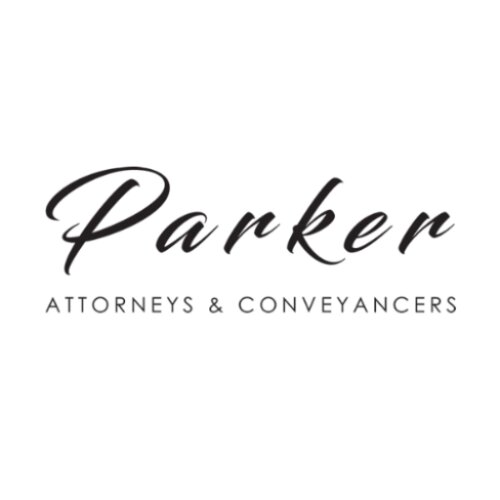Best Elder Abuse Law Lawyers in Cape Town
Share your needs with us, get contacted by law firms.
Free. Takes 2 min.
List of the best lawyers in Cape Town, South Africa
About Elder Abuse Law in Cape Town, South Africa
Elder abuse law in Cape Town, South Africa, is designed to protect the rights and welfare of older adults, defined as individuals aged 60 and above. These laws address various forms of abuse, including physical, emotional, financial, and neglect, ensuring that elders have the means to live with dignity and safety. The cornerstone of South African elder abuse law is the Older Persons Act 13 of 2006, which outlines measures to prevent abuse, provide support services, and promote the wellbeing of older individuals. In Cape Town, as in the rest of the country, elder abuse legislation is promoted alongside general welfare and human rights laws to safeguard the elderly population.
Why You May Need a Lawyer
You might need a lawyer specializing in elder abuse law if you or a loved one are experiencing any of the following situations:
- Physical harm or punitive actions by caregivers or family members.
- Unexplained financial transactions, loss of property, or unauthorized use of financial resources.
- Signs of neglect, such as malnutrition or inadequate medical care.
- Emotional or psychological distress resulting from verbal abuse or coercion.
- Suspected systematic discrimination within residential facilities or nursing homes.
- Challenges in accessing pensions, benefits, or necessary healthcare services.
Legal assistance can help rectify these situations by holding perpetrators accountable and seeking redress or compensation through judicial processes.
Local Laws Overview
The legal framework for elder abuse in Cape Town is primarily grounded in the Older Persons Act 13 of 2006. This act encompasses:
- Definitions of elder abuse, including different types of abuse and their manifestations.
- Legal responsibilities for caregivers and institutions, emphasizing the rights and dignity of older persons.
- Reporting requirements and protocols for suspected cases of elder abuse.
- Procedures for providing necessary support services, including counseling and medical aid.
- Legal recourse options for affected individuals and the potential penalties for offenders.
In addition, the South African Constitution and other human rights laws support elder protection, advocating for equality, dignity, and freedom from discrimination.
Frequently Asked Questions
What constitutes elder abuse in legal terms?
Elder abuse legally includes physical, emotional, financial abuse, neglect, abandonment, and any actions or inactions that cause harm or distress to older individuals.
Is there mandatory reporting for elder abuse cases?
Yes, under South African law, certain professionals, such as healthcare workers and social services providers, are obligated to report suspected cases of elder abuse.
How can I report elder abuse in Cape Town?
You can report elder abuse to local law enforcement, social services departments, or through helplines operated by organizations such as the South African Human Rights Commission.
What legal protections are available for victims?
Victims can obtain protective orders, initiate criminal proceedings against perpetrators, and seek civil remedies like compensation through the courts.
Can I pursue legal action on behalf of an incapacitated older person?
Yes, you can pursue legal action on behalf of an incapacitated elder through power of attorney or legal guardianship, subject to court approval.
Are there specific laws addressing financial exploitation of elders?
Financial abuse falls under the Older Persons Act and general fraud and theft statutes, allowing victims to seek restitution and legal action against exploiters.
What are the penalties for elder abuse in Cape Town?
Penalties can include fines, imprisonment, or both, depending on the severity of the abuse and the criminal charges applicable under South African law.
Can elder abuse lead to criminal charges?
Yes, elder abuse can result in criminal charges, including assault, fraud, and neglect, which are prosecuted in criminal courts.
What if the abuser is a family member?
Family relationships do not exempt individuals from prosecution; the law treats all perpetrators equally, irrespective of their relationship to the victim.
How long do I have to file a lawsuit for elder abuse?
Statutes of limitations apply, but they vary depending on the type of abuse. Consult a lawyer to understand specific time frames applicable to your case.
Additional Resources
The following resources can provide valuable support and guidance:
- Western Cape Government Department of Social Development: Offers support and interventions for elder abuse cases.
- South African Human Rights Commission: Provides resources and a platform to report elder rights violations.
- National Elder Helpline: A toll-free number (0800 333 231) for immediate assistance and counseling.
- Legal Aid South Africa: Can provide legal advice and assistance for qualifying individuals.
Next Steps
If you need legal assistance in elder abuse law, consider the following steps:
- Document any evidence of abuse, including medical records, financial statements, and witness testimonies.
- Contact a legal professional who specializes in elder abuse for a consultation.
- Reach out to local social services for support and to report the abuse formally.
- Explore emergency protective measures if the situation warrants urgent intervention.
- Consider long-term support and care options for the elder involved to ensure ongoing safety and wellbeing.
Lawzana helps you find the best lawyers and law firms in Cape Town through a curated and pre-screened list of qualified legal professionals. Our platform offers rankings and detailed profiles of attorneys and law firms, allowing you to compare based on practice areas, including Elder Abuse Law, experience, and client feedback.
Each profile includes a description of the firm's areas of practice, client reviews, team members and partners, year of establishment, spoken languages, office locations, contact information, social media presence, and any published articles or resources. Most firms on our platform speak English and are experienced in both local and international legal matters.
Get a quote from top-rated law firms in Cape Town, South Africa — quickly, securely, and without unnecessary hassle.
Disclaimer:
The information provided on this page is for general informational purposes only and does not constitute legal advice. While we strive to ensure the accuracy and relevance of the content, legal information may change over time, and interpretations of the law can vary. You should always consult with a qualified legal professional for advice specific to your situation.
We disclaim all liability for actions taken or not taken based on the content of this page. If you believe any information is incorrect or outdated, please contact us, and we will review and update it where appropriate.
















